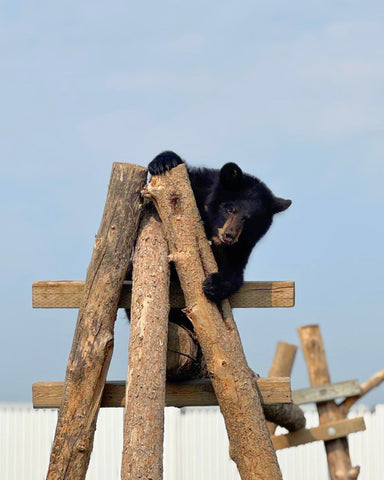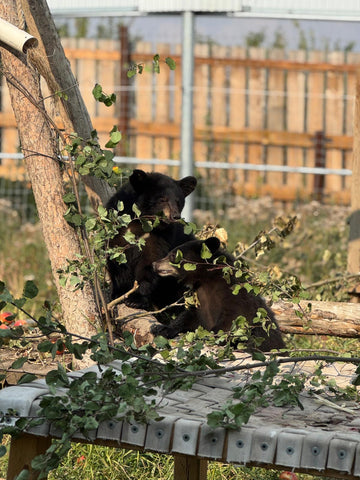👇 Psst... scroll down to fill out the details and add to your cart! 👇


Each package comprises a personalized certificate with the recipient's name, an 8 x 10 photo, and qualifies for a tax receipt.
🎁 Holiday Shipping Update: Due to the Canada Post strike, expect delays on physical sponsorships. Order by Dec 7 for the best chance of delivery. Digital sponsorships send instantly!
(Ursus americanus). Patient Number(s) 25-474, 595, and 697.
Date of admission: June 2025.
Reason for admission: Orphaned.
Patient History:
The American black bear is the most widely distributed bear species in North America and is the world’s most common bear species. American black bears continue to inhabit much of their historical Canadian range. The preferred habitat consists of sparsely settled hardwood forested areas. American black bears are omnivores, but up to 85% of their diet consists of vegetation. When emerging from hibernation in the spring, black bears will feed on carrion and newborn ungulates. During the summer, they will feed on honey and a variety of plant species, with their diet consisting primarily of fruits and berries. During the autumn months, black bears actively search out nuts, particularly hazelnuts, acorns, and pine nuts. If food is abundant, bears can be known to feed in groups.
Black bear mating takes place in June, July, and August, and pairs will likely remain together for only a few hours or days; the remainder of the time, they are typically solitary. Average home ranges are 3 to 40 square kilometers and are typically exclusive, except a male range may be larger and overlap with females during mating seasons. The female has a gestational period of approximately 220 days, with cubs being born in the den between January and February. The average litter size is two, though it can be upwards of five in some cases. Cubs are fully weaned by 6-8 months but will remain with their mothers for the first year. Additionally, most female black bears only mate every two years. The average lifespan of a black bear is 20 to 25 years.
AIWC receives black bear cubs every year for a variety of reasons. Many are orphaned and found alone with no sign of their mother, or their mother is known to be gone. Since 2019, we’ve successfully rehabilitated 22 cubs—with a 100% success rate of returning them to the wild. Each cub is monitored after release, and we’re honored to play a role in giving them a second chance at life in their natural habitat.
This year, three orphaned black bear cubs arrived in June 2025 from different areas across northern Alberta. When they came to us, they were approximately four months old, and the smallest weighed just 2.7 kg (6 lbs) after being found alone for an extended period. By the time they are ready for release this fall, each cub will weigh around 47 kg (100 lbs).
Although they’ll soon be returning to the wild, AIWC continues to rely on your support to cover the costs of their care and to prepare for future patients in need. It’s thanks to your generosity that we can continue providing care to Alberta’s wildlife!
